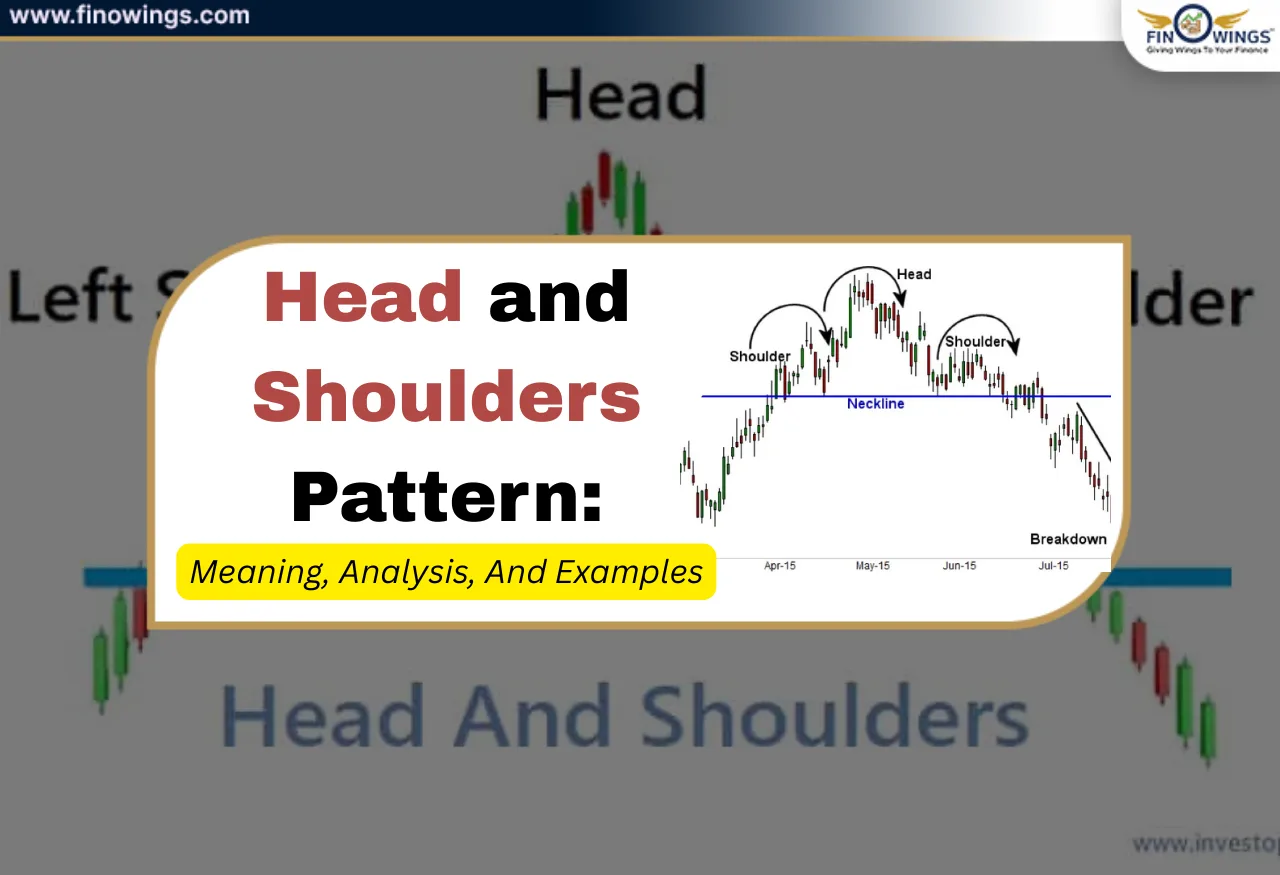Home >> Blog >> What is Derivatives – It’s Types, Advantages, and Disadvantages
What is Derivatives – It’s Types, Advantages, and Disadvantages
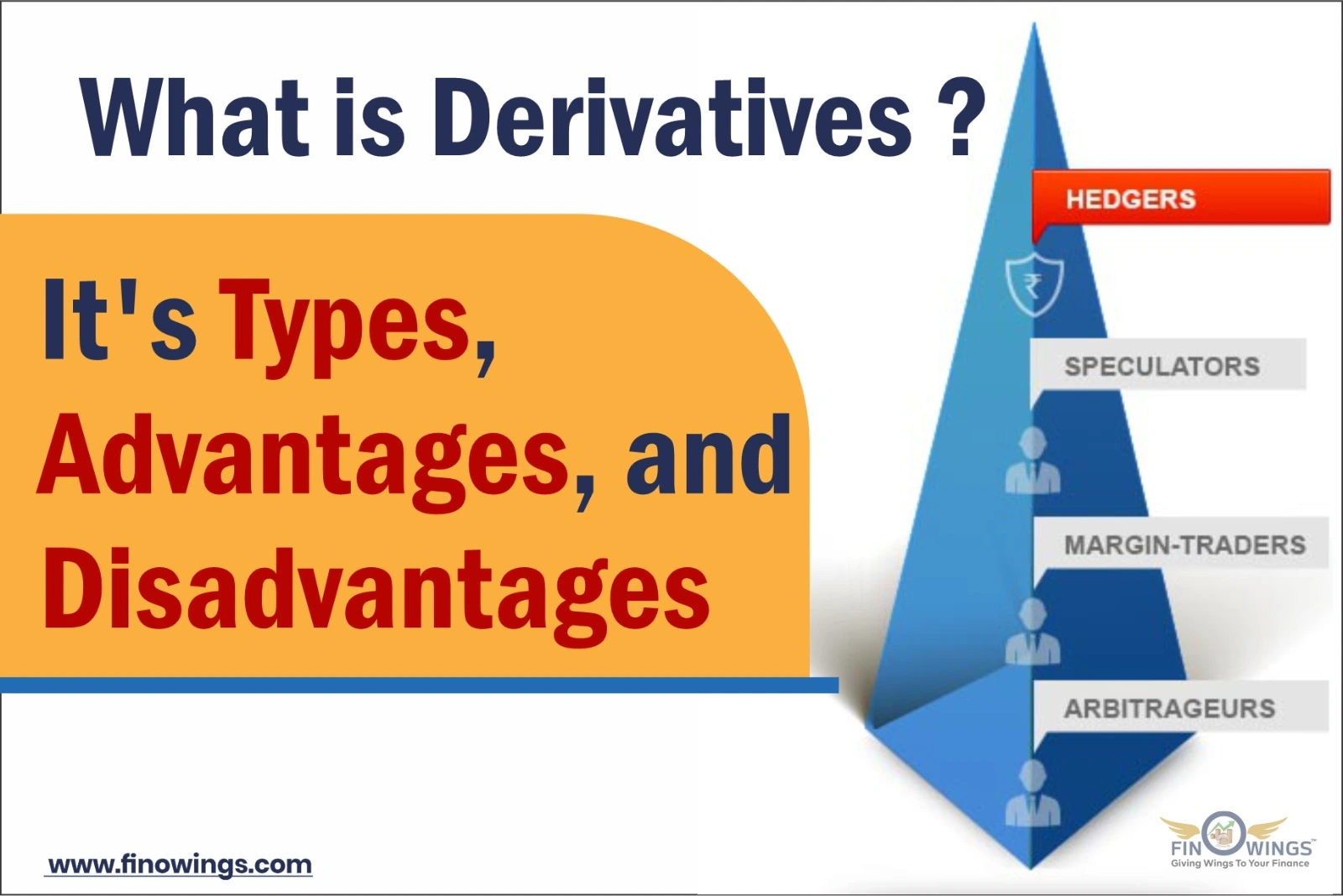
Table of Contents
1. What are Derivatives – Its Types, Advantages, and Disadvantages
Aside from buying and selling registered entity shares, there are numerous other ways to invest in financial markets. Derivatives are one of these options. As a result, you can profit from your investment by speculating on the price of underlying assets.
Investors widely use this trading option to invest money and earn a significant profit. In addition, it adds diversification to the portfolio and acts as a risk transfer vehicle.
However, it has significant risks, which you should be aware of before investing in derivatives. We have covered everything you need to know about products in this article. Continue reading to learn more.
2. What are Derivatives?
Derivatives are financial contracts with a value, and the importance of these contracts is determined by the underlying asset or group of assets. These assets are traded on a separate market.
Derivatives include common assets such as stocks, bonds, currencies, commodities, and market indices. The value of these assets fluctuates according to market conditions, and as an investor, you must forecast their future value to earn profit.
For example, if the market price of a particular asset rises, the value of the derivatives rises as well, whereas if the price falls, the value of the products falls as well.
The main idea is to forecast the future prices of underlying assets and bet on them based on your knowledge and research to earn profit or protect yourself from losses in the spot market.
2.2 Types of Derivatives
You can invest in numerous derivatives to speculate on prices, manage risk, and leverage a position. The various types of products are listed below.
2.2.1 Forwards
It is a contract between two parties to buy or sell assets at a predetermined rate in the future. It is not traded on the stock exchange but is available over the counter. As a result, it is not influenced by market prices.
Forwards do not guarantee a high profit but provide a cushion against loss and reduce risk. Over-the-counter forwards, on the other hand, do have some chance. However, there is a credit risk, meaning the buyer or seller may fail to fulfil their obligation.
One party may go bankrupt in the future or be unable to fulfil the contract; in such a case, the other party will be unable to save its position.
2.2.2 Futures
Futures are a type of financial contract between two parties, similar to forwards. However, there is one significant distinction between forwards and futures. Futures can be traded on exchanges, making the market more standardized and regulated. They are typically used for commodity speculation.
2.2.3 Options
Options are a financial contract between buyer and seller in which they agree to buy or sell financial assets or securities in the future at predetermined prices, similar to lots. The difference is that the parties are not required to fulfil the contract.
This means that the buyer or seller can terminate the contract or refuse to complete the transaction in the future. Similarly, they can buy or sell securities anytime without being bound by an agreement.
The options are similar to allowing the parties to reduce the risk of a volatile market.
2.2.4 Swaps
Swaps, as the name implies, are financial derivatives that allow you to convert one type of cash flow into another. This contract is not traded on an exchange; rather, it is sold over the counter. Swaps are private agreements reached between the parties.
Currency swaps and interest rate swaps are the most common examples of swaps. Currency swaps, for example, are the exchange of one currency for another for the same amount.
2.3 How to Invest in Derivatives
To make a profit on your investment in any market, you must first understand the terms and conditions of that market. The market is influenced by various factors that should be thoroughly researched.
Even a single factor can sway the entire market and cause significant shifts in your investment. You may enter the market due to peer pressure or to gain experience. However, if you want to profit from your investment, you must abandon your casual attitude and conduct adequate research to understand market trends.
Here are some essential considerations to bear in mind when trading derivatives:
-
Investment is not a one-size-fits-all proposition. Each investment has a unique strategy. To begin trading in derivatives, you must first understand that the derivatives market is very different from the stock market.
-
To trade in derivatives, you must have a trading account. Before opening an account on any online platform, ensure they allow trading in derivatives, as not all platforms do.
-
To begin trading in derivatives, you must deposit a margin amount into your account. A margin amount is required to maintain your derivative account.
-
You can also trade derivatives with the assistance of a broker. The broker will charge the fee, and you will be able to place the order on call.
-
You will not be able to withdraw the margin amount until your contract has been completed and the trade has ended. In addition, if your margin falls below the required amount, you will need to deposit more money to rebalance the amount.
-
Before investing in any underlying assets, consider your budget and conduct due diligence. Check the stock margin, cash on hand, contract price of the underlying assets, and other factors carefully.
3 . Advantages of Derivatives
Some expected benefits of derivatives are:
3.1.1 Hedging Risk
Derivatives are best to reduce risk as the price of assets is predetermined. It gives a good hedge against the risk of the market. It is used as an insurance policy to control the risk. It is easy to form a new investment in one’s investment to reduce the risk in derivatives.
3.1.2 Transaction Cost is Low
The transaction cost in derivatives is low compared to trading in other securities such as stocks and bonds. The main reason for the low transaction cost of products is that they are used to control risk.
3.2 Disadvantages of Derivatives
Some common disadvantages of trade in derivatives are:
3.2.1 High Risk
Though derivatives reduce risk, some are involved in derivative trading. Product contracts are derived from the value of underlying assets, which are heavily influenced by market prices. Prices are frequently fluctuating and thus unpredictable.
3.2.2 Speculative
The most common way to earn profit from your derivatives investment is to speculate on the future prices of underlying assets. However, the unpredictable nature of the market and price fluctuations make speculation risky and may result in losses on your investment.
4 . Conclusion
The derivatives market is distinct from the shared equity market, and you must first gain a thorough understanding of it before trading in it. Then, you must ensure that you can leverage it and earn profit with minimal risk, which requires research. Otherwise, you risk incurring significant losses on your investment.
Do you plan on investing in derivatives, or have you already begun? Please share your thoughts on investing in products in the comments section.
Author
Frequently Asked Questions
The most common types of derivatives include swaps, forwards, futures, and options.
Yes, trading in derivatives is based on assumptions, and since assumptions can work in your favour or against you, there is some risk involved. However, you can reduce your risk if you make assumptions after conducting adequate research.
Derivatives trading is available on a number of platforms. These days, there are various online trading platforms that allow you to trade in futures and options.

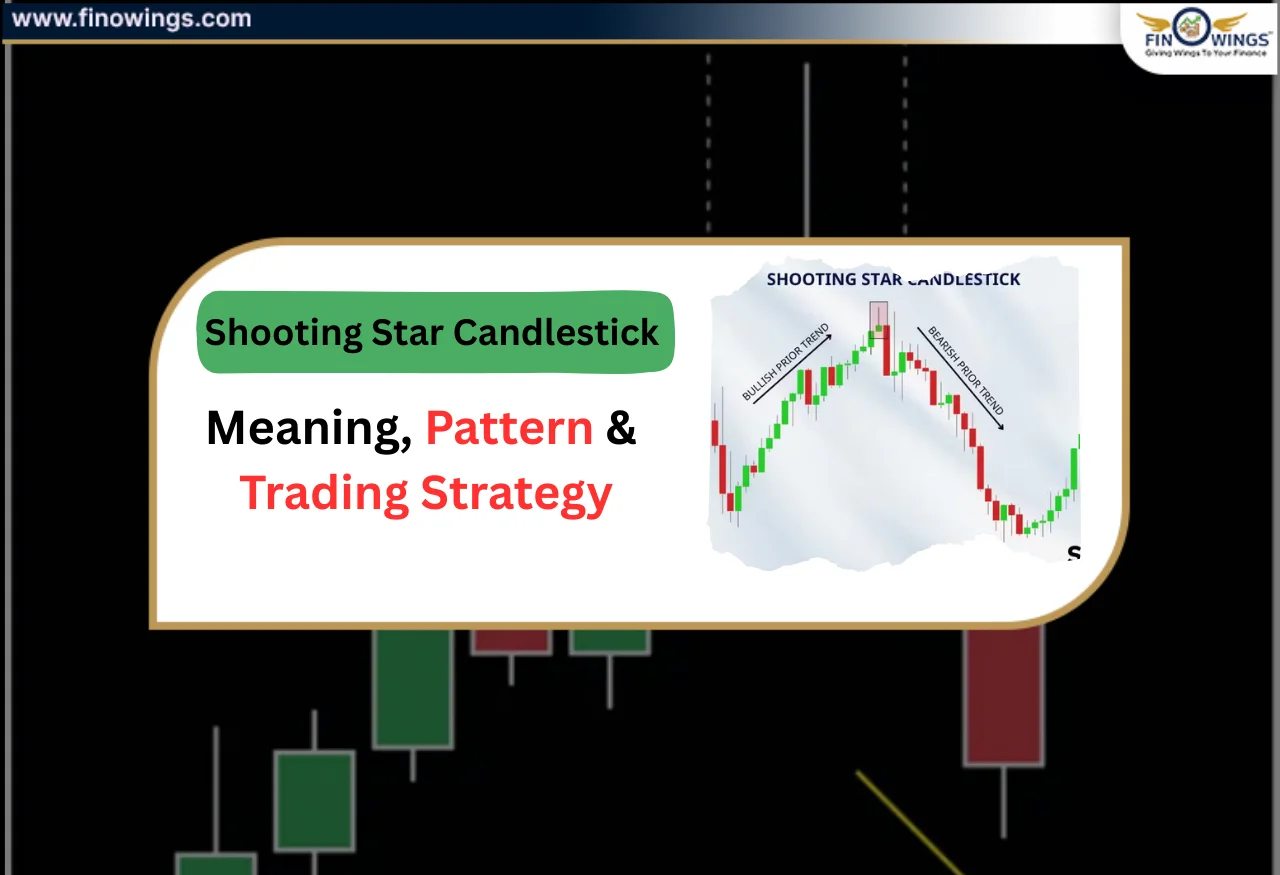







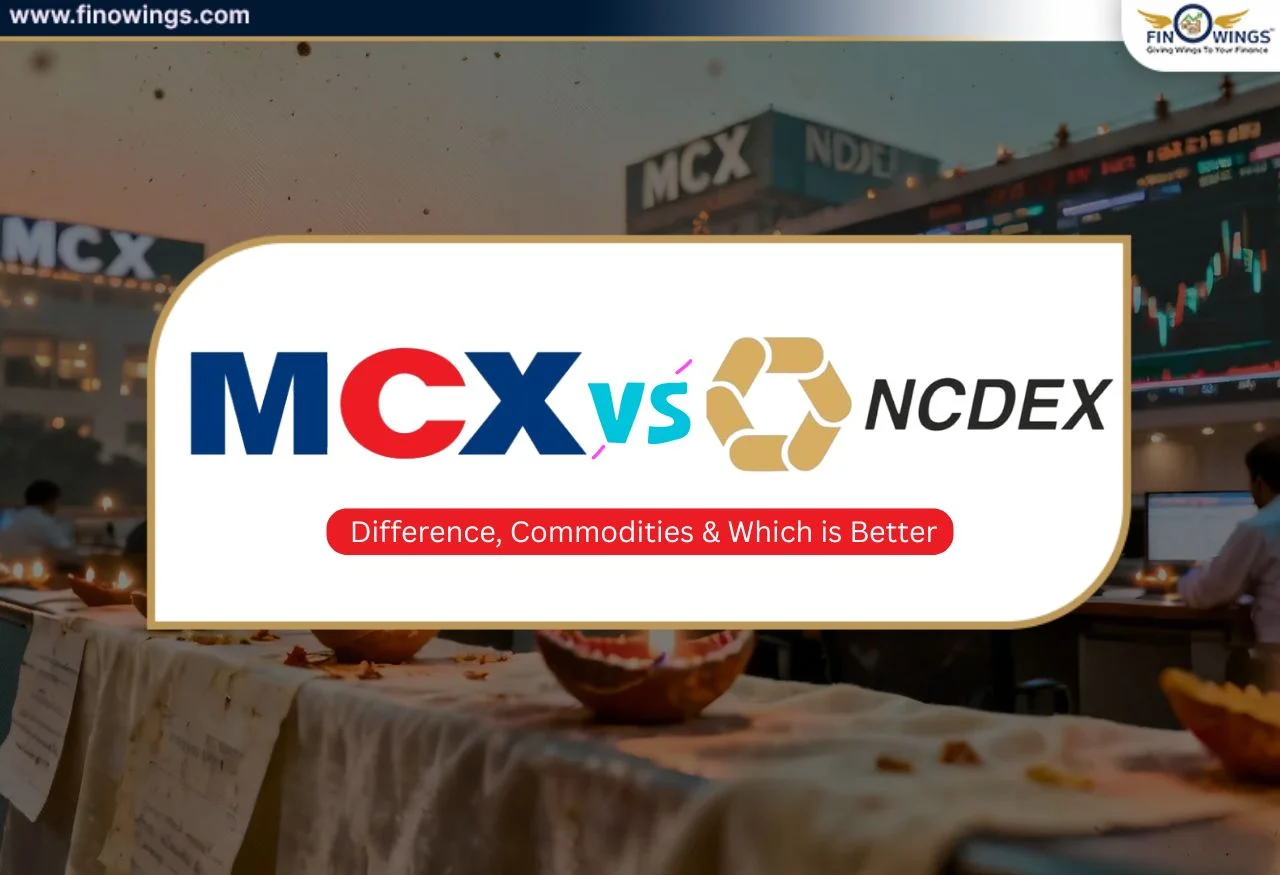
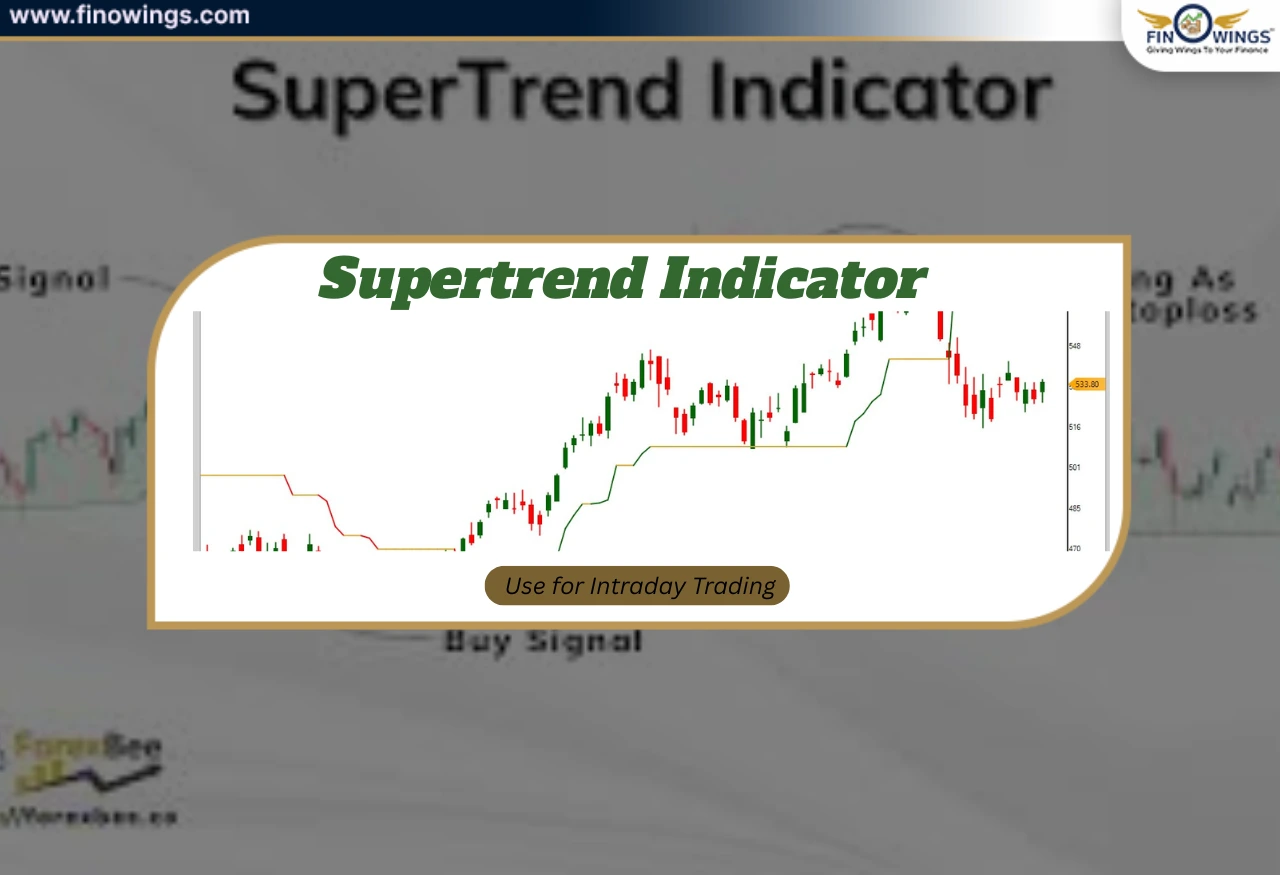
.webp)
